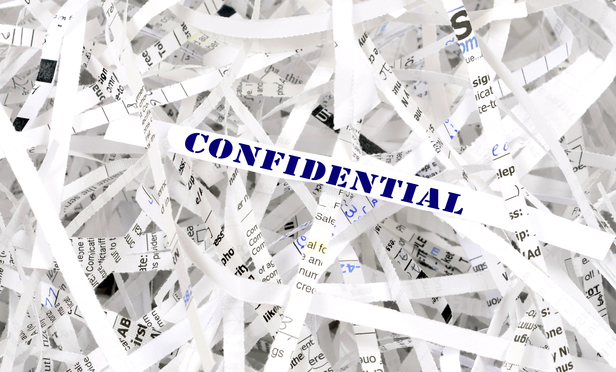Tara Lawler

September 24, 2014 | The Legal Intelligencer
When Information Governance and Data Privacy CollideThe so-called "Big Data" problem has caused many organizations to breathe new life into their record-retention programs. A whole new discipline—information governance—has emerged as a framework to govern the creation, use, retention and disposition of information, as well as the technical platforms on which the information resides. While storage may still be cheap, with the ever-increasing data volumes, even traditional infrastructure organization is being challenged. As a result, more multinational corporations are moving to the cloud as a cost-savings mechanism for everything from email to database storage and document creation, such as Google Docs. In addition, while corporate IT may have been driven by a goal to decentralize over the past several years, the current trend toward centralization of company information to achieve cost savings carries the day today. This all sounds like a great first step in an organization's attempt to get its hand around its own Big Data issues. But what happens when what makes the most business sense might actually be putting the company at risk?
By Laura Kibbe and Tara Lawler
7 minute read

July 02, 2014 | The Legal Intelligencer
Using Technology for Successful Information GovernanceMost organizations have exploding volumes of data scattered throughout the company in various data sources: email, hard drives, shared drives, SharePoint, structured databases, wikis and the cloud.
By Tess Blair, Tara Lawler and Laura Kibbe
4 minute read
March 27, 2014 | New Jersey Law Journal
Differences Between Information Governance and Records ManagementInvesting in a system of information governance for your firm or company is a win-win proposition, as it enhances productivity and reduces risk.
By Stephanie "Tess" Blair and Tara Lawler
6 minute read

March 26, 2014 | The Legal Intelligencer
Differences Between Information Governance and Records ManagementGiven the exploding volume of data that organizations in the United States create and store, and the steady diet of compliance, data security, privacy and discovery obligations they face, information governance is garnering a lot of attention these days.
By Stephanie "Tess" Blair and Tara Lawler
6 minute read

March 28, 2012 | The Legal Intelligencer
What to Consider When Deciding to Issue a Litigation HoldA company is obligated to preserve evidence when it "reasonably anticipates" litigation. Failure to issue a written litigation hold at that time can constitute gross negligence.
By Erica Smith-Klocek, Lisa Dykstra and Tara Lawler
7 minute read

October 25, 2011 | The Legal Intelligencer
Using Lean Six Sigma and Predictive Coding to Confront Volume ProblemTraditional document review in the age of e-discovery is reaching the point of infeasibility. Setting hordes of attorneys in front of computer screens to review and code millions (sometimes billions) of records is not only prohibitively expensive, but often results in errors and inconsistent quality.
By Stephanie A. Blair and Tara Lawler
7 minute read

August 14, 2013 | The Legal Intelligencer
E-Discovery Considerations for Choosing Cloud ProvidersIt's 10 a.m. on a Saturday morning in an airport departure lounge. Your employee is about to depart with her family for a well-deserved vacation. Suddenly, her mobile phone buzzes with an email containing an urgent request.
By Tara Lawler and Katie Langston
6 minute read

November 14, 2011 | Legaltech News
Using Lean Six Sigma and Predictive Coding to Confront Data VolumeMorgan Lewis's Stephanie A. Blair and Tara Lawler describe how the firm combines predictive coding and Lean Six Sigma techniques for higher-quality, lower-cost document review.
By Stephanie A. Blair and Tara Lawler
7 minute read
Trending Stories
- 1Judge Denies Sean Combs Third Bail Bid, Citing Community Safety
- 2Republican FTC Commissioner: 'The Time for Rulemaking by the Biden-Harris FTC Is Over'
- 3NY Appellate Panel Cites Student's Disciplinary History While Sending Negligence Claim Against School District to Trial
- 4A Meta DIG and Its Nvidia Implications
- 5Deception or Coercion? California Supreme Court Grants Review in Jailhouse Confession Case
More from ALM
- Legal Speak at General Counsel Conference East 2024: Match Group's Katie Dugan & Herrick's Carol Goodman 1 minute read
- Legal Speak at General Counsel Conference East 2024: Eric Wall, Executive VP, Syllo 1 minute read
- Legal Speak at General Counsel Conference East 2024: Virginia Griffith, Director of Business Development at OutsideGC 1 minute read



